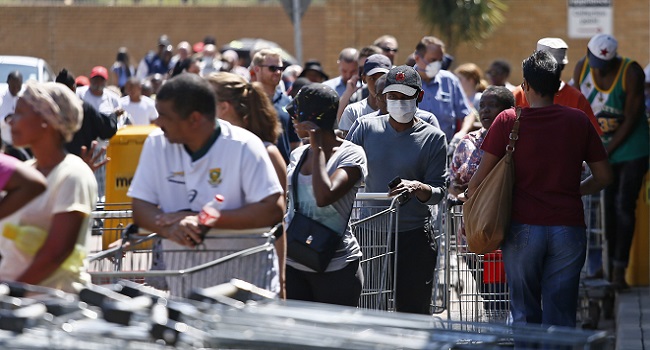COVID-19 Kills Fewer African Women Than Men – WHO Study

![]()
Women in Africa are less likely to die from Covid-19 than men, but more likely to succumb to maternal complications due to limited access to reproductive services since the pandemic started, the UN said Thursday citing reports.
A study of 28 African countries including Guinea, Mauritius and Uganda showed that on average women accounted for a slightly smaller proportion of coronavirus infections and deaths compared to men.
Overall around 41 percent of reported Covid-19 cases were women, although the figures ranged widely from 31 percent in Niger to more than 57 percent in South Africa.
READ ALSO: Why Buhari, Others Will Receive COVID-19 Vaccine ‘In The Open’ – Minister
“In most countries, women are somewhat less likely to die from Covid-19 than men,” World Health Organization (WHO) regional director for Africa Matshidiso Moeti told an online news conference.
But the pandemic had exposed gaps in health services, with women suffering the brunt of disrupted access to care.
“There was a rise in maternal deaths in 10 countries,” Moeti said, making reference to another study that collated data between February and July 2020.
The highest jumps were recorded in the Comoros, Mali, Senegal and South Africa.
Access to sexual and reproductive care was already poor on the continent before coronavirus hit.
But access was made worse by restrictions to stem the spread of Covid-19, pushing more women to seek risky informal abortions, Moeti explained.
Overstretched hospitals were often unable to see patients seeking non-coronavirus related services, she added.
More data is still needed to determine the full extent of the effect.
AFP


